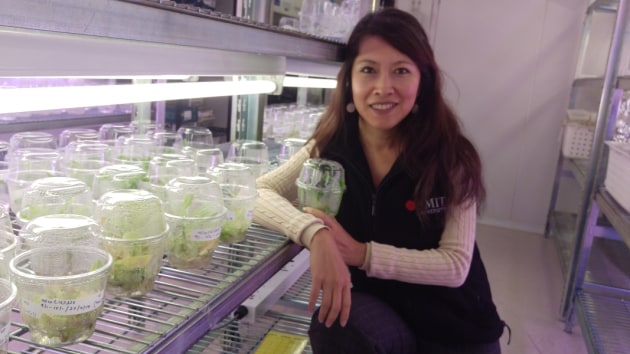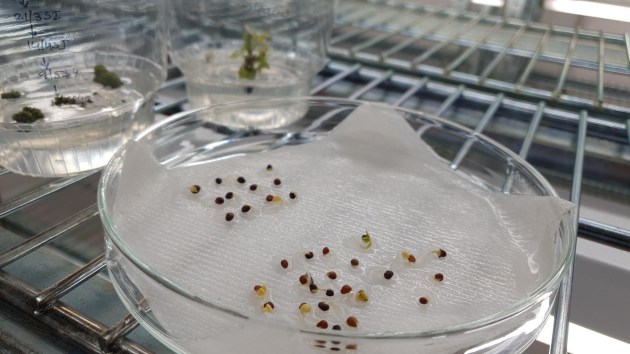Plants on the moon could be a reality by 2026, with the federal government funding the Australian Lunar Experiment Promoting Horticulture’s project (ALEPH) to gain a better understanding of horticulture in extreme environments.
The ALEPH project led by start-up Lunaria One with RMIT, QUT and ANU as the major Australian university partners along with industry bodies – has just received $3.6 million as part of the Australian Space Agency’s Moon to Mars Initiative.
Investigating whether seedlings can grow on the lunar surface is of fundamental biological interest and important to know for possible future space exploration, but it could also reveal more about growing plants in a changing climate on Earth.
Lunaria One co-founder and engineering lead for the project, Dr Graham Dorrington said the seeds and plants will be transported in a specially designed and hermetically sealed chamber – equipped with sensors, water and a camera – aboard a lunar lander scheduled for a mission in 2026.
“Our major challenge is designing the chamber to maintain suitable conditions to permit germination on the lunar surface, where the external surface temperature fluctuates from highs of 80°C to lows of –180°C,” said Dorrington.

The chamber also needs to be lightweight – no more than 1.5 kg – and able to operate on minimal power while transmitting data via the lander back to Earth, using data rates of less than 40 kb/s.
“These are considerable challenges, but we have the necessary staff and facilities here at RMIT to succeed," said Dorrington.
RMIT will also contribute expertise in plant biology from the School of Science, led by associate professor Tien Huynh.
“We know some plants grow differently in altered gravity conditions, but don’t yet fully understand how and why.

“In addition, the harsh lunar environment has a thin atmosphere, rapidly changing temperatures, and relatively poor soil properties, meaning that whatever we grow on the surface will need to be hardy,” said Huynh.
One of the plants being considered for the mission is Rapeseed (Brassica napus), a yellow-flowered plant grown for a range of food production and industrial uses.
“Preliminary results suggest this could be a good candidate as far as extreme temperature tolerance and germination speed for surviving a mission to the Moon or Mars,” Huynh said.
After landing on the lunar surface, the plants' growth and general health will be monitored and data and images will be beamed back to Earth.
RMIT will also be contributing computer science expertise for data compression to enable this part of the operation.
RMIT deputy vice-chancellor STEM College professor Ian Burnett said the cross disciplinary research could provide valuable insights into how to support horticulture in extreme climates on Earth.
"We view the development of this lunar payload as an excellent opportunity to tackle extreme engineering and biological challenges that will likely lead to terrestrial benefits as well as answers for space exploration," Burnett said.
The collaboration with Lunaria One will bolster RMIT’s growing space industry eco-system, united under the university’s Space Industry Hub.
In all, a dozen RMIT engineers, scientists, educators and industrial design students, as well as Ben Gurion University in Israel are contributing to the project.






